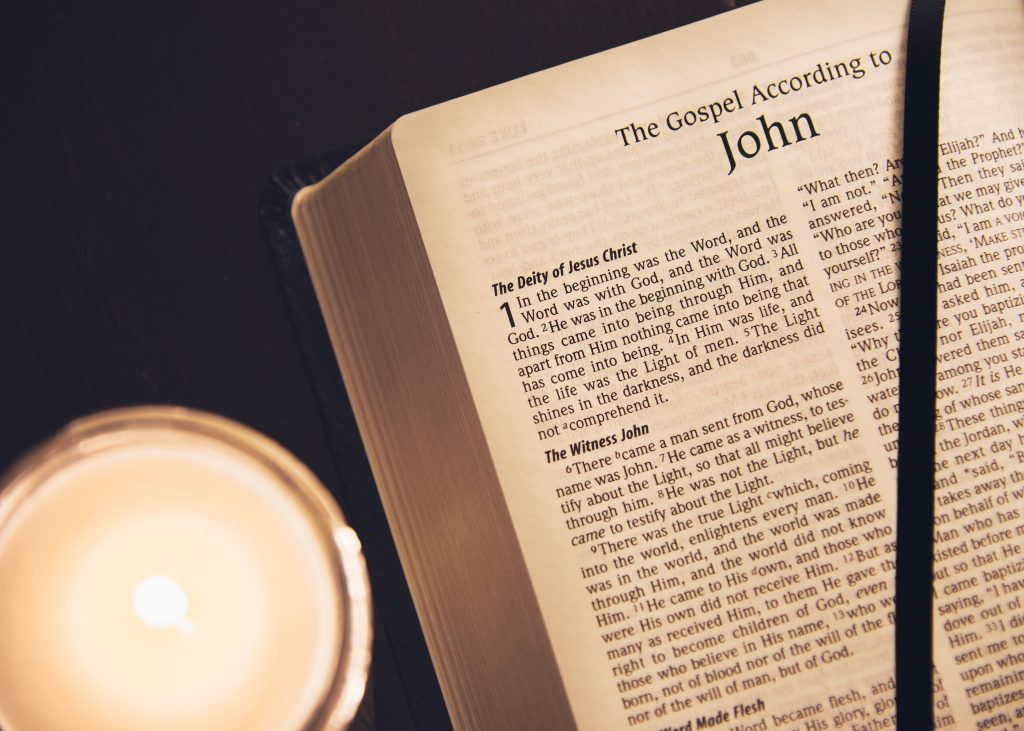21 And the LORD said to Moses, “When you go back to Egypt, see that you do before Pharaoh all the miracles that I have put in your power. But I will harden his heart, so that he will not let the people go. 22 Then you shall say to Pharaoh, ‘Thus says the LORD, Israel is my firstborn son, 23 and I say to you, “Let my son go that he may serve me.” If you refuse to let him go, behold, I will kill your firstborn son.’ ”
Exodus 4:21-23
Historically, this has been a difficult text but one that I am convinced preaches loudly. Its preaching is a bit obscure to our Western ears as it doesn’t give multiple premises and arrive at a distinct conclusion. Instead, this text gives us a starting line and then proceeds to preach through movement. It draws our attention and does so especially in the light of Hosea 11:1 and its fulfillment in the beloved Son, Jesus Christ. Quickly, I would like to draw attention to this by focusing on the starting line, the path of the race, and the finish line.
Israel Is My Firstborn Son
I’m ashamed to say that when I approached Exodus 4:22 I found myself skipping the interpretation and prematurely launching into the New Testament. “Surely, Israel isn’t the firstborn son of God,” I thought. In my mind, and within reason, Jesus Christ is the firstborn son of God. Scripture shouts that Jesus is the firstborn in a myriad of ways and yet the reality is that Jesus is nowhere called the firstborn son of God. This is a title that is exclusively given to the Israelites. We can certainly make arguments based in typology that would grant this title, “Firstborn Son of God” to the Lord Jesus Christ. I’ll lay my cards on the table: I love typology. I believe typology is the normative way that God revealed the gospel in mystery throughout the Old Testament (Romans 16:25-27). While typology has a home in the Old Testament, we do not aim to force it into the pages of Exodus. Instead, we simply knock with the hope that the Spirit of God might illuminate what He, in His infinite wisdom, placed there as Moses penned the story.
Here, then, is my basic argument. First, Israel is the firstborn son of God. This “firstborn-ness” isn’t an argument of superiority or inferiority but instead is a setting apart of the ethnic people of Israel as the stage of divine revelation. God is, through the narrative of Exodus, fulfilling His promise to Abraham, Isaac, and Jacob. He is preparing to deliver and redeem the people from slavery in Egypt, and He is simultaneously making them into the nation through which Messiah will come. God’s emphasis on the children of Israel is a signpost that demands the attention of the reader.
Second, Israel will be called out of Egypt. This text makes clear that God will deliver His people; it isn’t up for negotiation. God will call His son, Israel, out of Egypt. In doing so He is delivering His people out of the land of slavery and fulfilling His covenant promise to Abraham from Genesis 15:13-14. In this deliverance God demonstrates His covenant faithfulness to Abraham, Isaac, and Jacob and takes for himself the sons of Israel and will, over the next few chapters, make them into a nation.
Third, Israel will be called through the water of the Red Sea (Exodus 14:21-22). It is in this crossing of the Red Sea that the Lord demonstrates the magnitude of the salvation He has provided. There is no question that apart from God’s strong and mighty hand Israel would have perished at the hands of the Egyptians. God confirms His promises through the waters. Paul even goes so far as to speak of this moment as being baptized into Moses (1 Corinthians 10:2).
Fourth, Israel is led into the wilderness and arrives at the mountain of God. The wilderness is a place of testing, and in the case of the Israelites, a place for failing. Before the people of Israel have even arrived at Sinai they grumble and complain against God and His prophet. Those who have just tasted and seen the salvation of God will not trust him with their food and water. Israel failed multiple times in their three-month venture between Egypt and Sinai. They have been tested, and they have been found wanting, and the mountain they have come to is about to make that plain.
As the Israelites approach the mountain of God they are met with fear and trembling. They have come to a mountain that cannot be touched nor trodden upon. This mountain is described in Exodus 19:16, “there were thunderings and lightnings and a thick cloud on the mountain and a very loud trumpet blast, so that all the people in the camp trembled.” To touch this mountain is to touch the holy, and to touch the holy is to die.
In summary, the movement of the firstborn son of God, Israel is as follows. First, he is called out of Egypt. Second, He is called through waters. Third, He is brought into the wilderness and is tested. Fourth, He arrives at the mountain. Why does this matter? Because Matthew, under the inspiration of the Holy Spirit, saw fit to introduce his gospel with the exact same movement.
This Is My Son, With Whom I Am Well Pleased
For the sake of brevity, I will not spend any time noting the obvious commonalities that are present between the Lord Jesus and Moses recorded in Matthew 1-2 and will jump to our priority of tracing the Messiah’s movements as the beloved Son of God.
“When Israel was a child, I loved him,
Hosea 11:1
and out of Egypt I called my son.”“Now when they had departed, behold, an angel of the Lord appeared to Joseph in a dream and said, “Rise, take the child and his mother, and flee to Egypt, and remain there until I tell you, for Herod is about to search for the child, to destroy him.” 14 And he rose and took the child and his mother by night and departed to Egypt 15 and remained there until the death of Herod. This was to fulfill what the Lord had spoken by the prophet, “Out of Egypt I called my son.”
Matthew 2:13-15
The key connection between the movements of Israel and the movement of the Messiah is Hosea 11:1. There is much debate about how we should interpret Hosea 11:1. Some would argue that it is a typological verse; others argue that it is direct prophesy. Regardless of where you land, the outcome will be the same. In short, God will call His son out of Egypt. This verse isn’t looking back to the days of Israel in slavery. Instead, it is looking forward to another who will come and be called out of the land of Egypt.
I will quickly, then, trace the movements of the Lord Jesus Christ as I am convinced they are the primary concern of Hosea 11:1.
First, The Lord Jesus Christ is called out of the Land of Egypt. There are obvious differences between Israel being called out and Jesus being called out. It is true that Jesus wasn’t in slavery in Egypt, but the purpose of being called out isn’t in view–the movement itself is. God promised that Israel would be brought out of Egypt. Further, God promised that Messiah would be called out of Egypt and this promise is fulfilled in the Lord Jesus being called out of Egypt.
Second, the Lord is called through the waters of baptism. I am largely convinced that this section of Scripture, namely Matthew 3:13-4:11, communicates in shorthand form the active obedience of the Lord Jesus Christ. It is a perfect snippet of Christ’s perfect obedience to the Father. This movement through water contains another crucial moment for our understanding of the movement of Israel in the midst of the Exodus and the movement of Messiah through His true and better exodus. Matthew 3:16-17 says, “And when Jesus was baptized, immediately he went up from the water, and behold, the heavens were opened to him, and he saw the Spirit of God descending like a dove and coming to rest on him; and behold, a voice from heaven said, ‘This is my beloved Son, with whom I am well pleased.’” Notice the pronouncement of God the Father, “This is my beloved Son, with whom I am well pleased.” Every Jew present would have recognized the significance of this phrase. In their minds, they would have been challenged with the reality that Israel is the firstborn son. And yet, this man is named by the very voice of heaven as the beloved Son.
Third, the Lord Jesus was led into the wilderness. Here the Lord would be tested and He would not fail. Rather, in the wilderness, Christ would prevail. He would not gripe and grumble about His hunger as the Israelites did in the wilderness–He would instead live by the very word of God. He would not question God’s purpose and plan for Him as the Son of God–He would instead submit to the authority of the Father and refuse to test the Lord His God.
Finally, the Lord Jesus would sit upon the mountain of Matthew 5:1, “Seeing the crowds, he went up on the mountain, and when he sat down, his disciples came to him.” How perfect is the testimony of Scripture! The Messiah, the beloved Son of God, would be brought out of Egypt, through water, through the wilderness to be tested, and then sit upon the mountain of God where He would teach and exegete the very commands of God as given in Exodus 20.
The Festal Gathering and the Assembly of the Firstborn
Scripture doesn’t permit us to stop with this movement because this movement is executed by each and every Christian. Every Christian is led out of slavery to sin, through water, into the promised land, and up to the very mountain of God. Is this a bridge too far?
First, every Christian is brought out of slavery to sin by the finished work of Jesus Christ. A key passage to our understanding and tracing of this particular motion is Luke 9:30-31, which says, “And behold, two men were talking with him, Moses and Elijah, who appeared in glory and spoke of his departure, which he was about to accomplish at Jerusalem.” While the word “departure” certainly captures the event that was going to take place in Jerusalem, the English reader misses the true thrust of this statement. The word translated in the ESV as “delivered” is the Greek word ἔξοδον. The root word from which this comes is literally the word exodus. What exodus was accomplished in Jerusalem? Who did Jesus set free and lead out of captivity? I would submit to you that the exodus of the Lord Jesus Christ is the execution of Christ’s cross-work. Christ delivers a people out of slavery, not to Pharaoh in Egypt, but to sin and death. Hebrews 2:14-15 is a helpful crescendo to this thought, “Since therefore the children share in flesh and blood, he himself likewise partook of the same things, that through death he might destroy the one who has the power of death, that is, the devil, and deliver all those who through fear of death were subject to lifelong slavery.”
Secondly, what is the Christian called toward as he, by the grace of Christ, walks out of slavery to sin and death? Every Christian is called through the waters of baptism. Like the people of Israel walking through the sea, like the Lord Jesus fulfilling all righteousness in His baptism, the Christian is called through the waters of baptism and ultimately into the man Christ Jesus. John Gill offers a wonderful comment,
Their following Moses into the sea, which is meant by their being “baptized into him”, was an acknowledgment of their regard unto him, as their guide and governor, as baptism is a following of Christ, who has left us an example that we should tread in his steps; and is an owning him to be our prophet to teach us, and lead us the way; and it is a profession of our faith in him, as our surety and Saviour, and a subjection to him as our King and Governor. This their baptism in the sea was after their coming out of Egypt, and at their first entrance on their journey to Canaan’s land, as our baptism is, or should be, after a person is brought out of worse than Egyptian bondage and darkness, and has believed on the Lord Jesus Christ, and at the beginning of his profession of him, and entrance on his Christian race.
John Gill, Commenting on 1 Corinthians 10:2
The third movement is where the Christian experience differs from the Israelite and the Lord Jesus’ experience. The Christian does not go into the wilderness to be tested; the Christian goes directly into the promised Land. The Christian needs no testing because there is no work required for him. All the work necessary for the Christian’s salvation is rooted in the finished work of Jesus Christ. Both His active obedience (His fulfilling of all righteousness and imputation of that righteousness to His elect) and His passive obedience (His substitutionary work on the cross) are granted to every Christian as a free gift of grace. If we need not be tested, where then do we go? Ah, we enter His rest. Hebrews 4:8-10 says, “For if Joshua had given them rest, God would not have spoken of another day later on. So then, there remains a Sabbath rest for the people of God, for whoever has entered God’s rest has also rested from his works as God did from his.” Christ is the one who provides us rest. We enter the true and better rest of God through the true and better Joshua. Israel was called out of Egypt, through water, into the wilderness, and to Sinai. Christ was called out of Egypt, through water, into the wilderness, and sat upon the mountain and taught. The Christian is called out of slavery to sin, through water, but the wilderness testings have already been accomplished. We need not be tested, for our mediator and covenant head was tested, and He was found faultless. By grace and grace alone He ushers us into the promised rest.
Finally, the finish line is uniquely sweet. For that we turn to Hebrews 12:18-24,
For you have not come to what may be touched, a blazing fire and darkness and gloom and a tempest 19 and the sound of a trumpet and a voice whose words made the hearers beg that no further messages be spoken to them. 20 For they could not endure the order that was given, “If even a beast touches the mountain, it shall be stoned.” 21 Indeed, so terrifying was the sight that Moses said, “I tremble with fear.” 22 But you have come to Mount Zion and to the city of the living God, the heavenly Jerusalem, and to innumerable angels in festal gathering, 23 and to the assembly of the firstborn who are enrolled in heaven, and to God, the judge of all, and to the spirits of the righteous made perfect, 24 and to Jesus, the mediator of a new covenant, and to the sprinkled blood that speaks a better word than the blood of Abel.
Hebrews 12:18-24
Sinai is in the wilderness; Zion is in the promised land. Christians do not make their way to Sinai to listen to the thunders and threats of a Holy God. Why? What threats can there be for the saints with such a perfect Savior! Sin is dead, and the law’s demands are satisfied. We hear no threatenings; we see only rejoicing. So it is with Mount Zion! We are ushered to this place, and we are a part of the holy assembly. Here then is the thrill. This assembly is named “The Assembly of the Firstborn” because all who are in this assembly are treated as firstborn sons. It is easy to read this and instantly assume that the name of the assembly is anchored in the titles of Jesus Christ. He has right to the name firstborn unlike any other. He is the firstborn of Psalm 89:26-29. He is the firstborn of all creation (Colossians 1:15). He is the firstborn among many brothers (Romans 8:28). He is the firstborn from the dead (Colossians 1:18). He is the firstborn whom the angels worship (Hebrews 1:6). But what is in view here is not Christ’s titles but the privileges of the assembly. We, all the saints of God, receive the inheritance of God as a firstborn son. Does not Scripture teach us that we are heirs of God and co-heirs of the Lord Jesus? Pink, I believe says it best,
The Church is raised to the highest created dignity: superior privileges and a nobler dignity of son-ship pertain to its members than to the holy angels. This is solely due to their union with Christ, the original “Firstborn”. Christians have been made “kings and priests unto God”, which compromises the whole right of the inheritance. The entire election of grace, by God’s gratuitous adoption, are not only members of His family, but “heirs of God and joint-heirs with Christ” (Rom. 8:17), and thus given an inalienable title to the heavenly inheritance.
A.W. Pink, Gleanings in Hebrews
Conclusion
All the sons of God must take a specific journey. They are marked and identified through the movements God has ordained. The firstborn son, Israel, was called out of Egypt, through water, into the wilderness, and to Mount Sinai. The beloved son, The Lord Jesus Christ, was called out of Egypt, through baptism, into the wilderness, and sat and taught on the mountain of God. All those who are pronounced as sons of God by faith are called out of slavery to sin, through baptism, into the promised land, and to Mount Zion. What a blessed privilege it is to see and adore the beloved Son of God as He perfectly kept each motion so that we, by grace, might simply be ushered into the festal gathering at Mount Zion as part of the assembly of the Firstborn.








